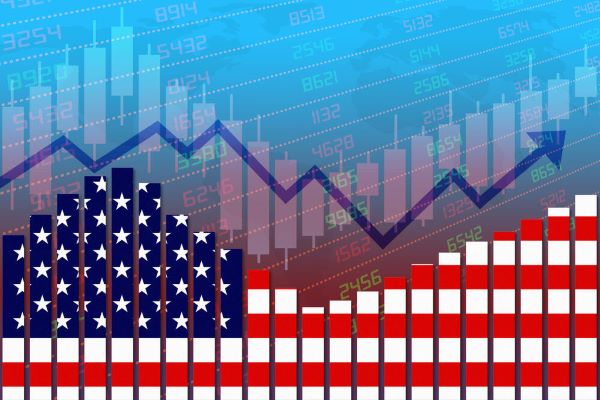Economy
What If the Economy Is Truly Strengthening?
In a surprising turn of events, the prevailing soft-landing hypothesis has taken the Economy spotlight, pushing recession concerns to the sidelines. The Federal Reserve’s relentless assault on interest rates has successfully curbed inflation, while employment remains robust, with a surge in new job creation and layoffs at cyclical lows. Corporate earnings are holding strong, challenging the skeptics who doubted a soft landing.
Acceleration Hypothesis Gains Momentum
Contrary to conventional wisdom, an increasing amount of evidence is suggesting an unexpectedly positive scenario. There is a growing possibility that the economy is not merely stabilizing but, in fact, gaining strength. This seemingly counterintuitive notion, arising after two years of interest rate hikes, is capturing attention as an acceleration hypothesis gains traction.
“Surprisingly upbeat signs challenge common views; mounting evidence hints at a stronger economy, defying expectations. Intriguing shift,” according to Bloomberg.
Key Indicators Flash Green
Key indicators such as unemployment rates and the stock market are flashing green, showcasing a resilience that contradicts expectations. December and January reported the strongest nonfarm payroll increases since September, and the stock market has soared over 20% from late October to mid-February.
Broader Economic Indicators on the Rise
Broader economic indicators, including the Citi Economic Surprise Index and the Conference Board’s Consumer Confidence Indicator, are on an upward trajectory. Average hourly earnings, a critical metric, have rebounded to 4.5%, surpassing the Federal Reserve’s comfort zone.
Pessimistic Data Points Turn Positive
Even seemingly pessimistic data points are turning positive. The ISM Manufacturing PMI Index, signaling contraction since the commencement of the Fed hikes, has recently exhibited notable improvement. In January, it recorded its most robust reading in over a year. The Federal Reserve’s Senior Loan Officer Opinion Survey reflects a shift from abysmal to slightly more favorable conditions for banks’ willingness to make loans.
Economic Acceleration’s Implications
Investors are urged to closely monitor these disparate yet promising signs, as the narrative of an accelerating economy gains momentum. This unconventional scenario, if proven true, could have far-reaching implications, impacting everything from Federal Reserve policies to presidential election results.
Rethinking Market Optimism
The market’s optimism, fueled by expectations of as many as four Fed rate cuts, may face a reality check. If the economy is indeed gaining strength, the rationale for rate cuts based on subdued inflation comes into question. An economy at full employment, a surging stock market, and rising average hourly earnings could pave the way for a resurgence in inflation.
The End of Goldilocks Era?
As portfolios adjust to this economic paradox, one thing becomes clear: the era of Goldilocks might be over. A stock market, where company fundamentals matter and high-quality securities analysis is in demand, could be on the horizon. This could usher in a new chapter in the world of finance.
“In navigating the economic paradox, portfolios shift; the Goldilocks era’s end signals a potential transformative financial chapter.,” according to Barron’s.

